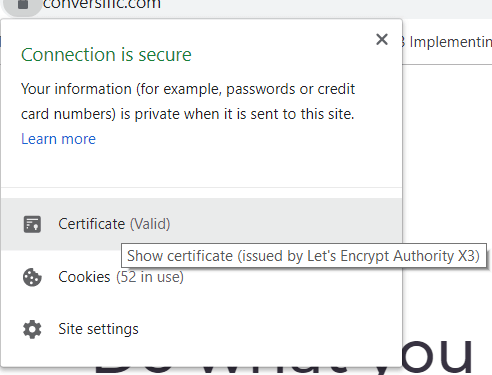Website security verification is a crucial process designed to ensure that users are genuine and to safeguard online platforms from malicious activity. As you navigate sites like www.ibj.com, you might encounter messages indicating that verification is underway, often due to Cloudflare security verification measures in place. This process not only helps maintain the integrity of the website but also addresses common JavaScript issues and ensures your cookies are enabled, which are vital for a seamless user experience. If website connection problems arise, they can hinder your access, highlighting the importance of website performance and security in today’s digital landscape. Therefore, understanding the nuances of website security verification can enhance both your browsing safety and overall online interaction.
The concept of ensuring online safety through user validation is often referred to as connectivity authentication or digital identity verification. Websites deploy various measures, such as Cloudflare’s robust protocols, to prevent unauthorized access while optimizing user experiences. Users may face specific challenges if JavaScript issues occur or if their browser settings disable cookies, both of which can lead to disruptions in web interaction. Improving website performance and security is essential, as it not only protects data but also enhances user engagement. Familiarizing yourself with these terms and processes can empower users to navigate the web with greater confidence.
Understanding Website Security Verification
Website security verification is a crucial process that ensures safe browsing experiences for users. When accessing a site, users may encounter messages indicating verification is underway, often managed by services like Cloudflare. This verification typically checks whether users are human or not, which is particularly essential in defending against bots and spam attacks. The process is rapid yet vital in maintaining the integrity and security of web pages.
The results of website security verification play a significant role in website performance and security. By preventing unauthorized access, sites can be shielded from various online threats, such as DDoS attacks and data breaches. However, users sometimes face issues like JavaScript problems or cookies not being enabled, which can hinder their ability to complete the verification. Understanding these components ensures smoother access to websites.
Common JavaScript Issues Affecting User Verification
JavaScript is a critical component in web functionality, particularly for security verification procedures. If users find that the verification takes longer than expected or fails altogether, it is often due to JavaScript issues on their end. Failing to enable JavaScript in the browser settings can prevent security scripts from executing properly, subsequently blocking users from accessing the website they intend to visit.
To resolve JavaScript issues, users should first check their browser settings to confirm that JavaScript is enabled. Additionally, clearing the browser cache can remove any corrupted files that might disrupt the verification process. These small troubleshooting steps can help enhance the overall website performance and provide a smoother browsing experience when verified security is in play.
The Role of Cookies in Website Security
Cookies play a pivotal role in the functioning of websites, especially in the context of security verification. These small data files store user preferences and login statuses, which are essential for a seamless browsing experience. When users receive a message stating that cookies are not enabled, it indicates that the site cannot store necessary session data, which can hinder the verification process.
For optimal website performance and security, it is vital for users to enable cookies in their browser settings. Doing so allows the site to remember the user’s previous interactions and ensures a quicker verification process. Moreover, understanding how cookies and security verification interact can empower users to navigate online spaces more confidently.
Addressing Website Connection Problems
Website connection problems often manifest as delays during the security verification process. Causes can range from poor internet connectivity to issues on the website’s server side. When users experience long wait times or inability to connect, it is essential to check both their local network settings and the website’s operational status. Tools like status checkers can assist in determining if the site is offline or facing issues.
Many users may also overlook the impact of their devices on connection stability. For instance, having multiple applications or tabs open can consume bandwidth, leading to slower verification processes. By optimizing device performance and connection speed, users can significantly enhance their experience while navigating through the website’s security checks.
Enhancing Website Performance Through Cloudflare
Cloudflare provides robust solutions that enhance website performance and security, particularly during the verification process. By employing its extensive Global Content Delivery Network (CDN), websites can ensure quicker load times, which is critical when users are awaiting security checks. Enhanced performance not only satisfies users but also reduces bounce rates, ultimately supporting higher search engine rankings.
Leveraging Cloudflare’s services mitigates the impact of malicious traffic, thereby improving overall site performance. During verification, the platform efficiently filters bots from genuine users, ensuring that legitimate visitors can connect without delays. This balance of security and speed is what makes Cloudflare an invaluable asset for modern websites.
The Importance of Technical SEO in Security Verification
Technical SEO is imperative for any website aiming to improve its security while enhancing user experience. Elements such as site speed, mobile-friendliness, and structured data directly influence how well security measures operate. A well-optimized website will ensure that security verification processes are seamless, making them less intrusive for users, thereby improving overall engagement.
When technical SEO practices are in place, they not only bolster website security but also provide users with confidence in navigating online spaces. This leads to an increased likelihood of returning users, who will associate the website with reliability and safety. Adopting robust technical SEO strategies can help bridge the gap between optimal performance and stringent security measures.
Resolving Common Browser Errors Affecting Security Verification
Users may encounter various browser errors that disrupt the security verification process. Common issues include blocked scripts or settings that prevent cookies from functioning, which are necessary for passing security checks. By troubleshooting these browser problems, users can enhance their experience while accessing different sites, making it smoother and more efficient.
To address such errors, users are encouraged to regularly update their web browsers and check relevant settings. Browser extensions can also interfere with script execution, so disabling them temporarily during the verification can be beneficial. Keeping everything up to date improves not only users’ access but also overall web security.
Exploring the Impact of Security Measures on User Experience
The security measures implemented by websites directly influence user experience. While they are essential for protecting sensitive data and maintaining site integrity, overly aggressive verification processes can frustrate users. Striking a balance between stringent security and a user-friendly experience is essential for retaining visitors and encouraging engagement.
Websites that utilize effective security tools, like those provided by Cloudflare, offer robust protection without compromising user experience. By optimizing these security measures, site owners can provide a seamless verification process that reassures users while safeguarding their data. This delicate balancing act is key to a website’s success in today’s digital environment.
Best Practices for Users During Security Verification
Users must take certain best practices into account to ensure a smooth security verification experience. Firstly, ensuring that both JavaScript and cookies are enabled on their browsers is critical. Navigating to browser settings and enabling these features can prevent common issues that may arise during the verification process.
Additionally, users should consider their device and connection quality, as they directly impact the speed of verification. Using a stable internet connection, closing unnecessary tabs, and keeping devices updated are all effective strategies to enhance website performance during security checks. Adopting these best practices helps avoid complications and improves the likelihood of successful verification.
Frequently Asked Questions
What is website security verification and why is it important?
Website security verification is a process that ensures a user is accessing a site safely and securely. It prevents bots and malicious traffic while allowing legitimate users to access the site. This process is crucial for maintaining the integrity of information and protecting personal data online.
How does Cloudflare security verification work?
Cloudflare security verification works by analyzing incoming traffic to determine if it’s coming from a legitimate user or an automated bot. It may temporarily block access until the verification process, which often includes enabling JavaScript and cookies, is successfully completed.
What should I do if I see a message about JavaScript issues during website security verification?
If you encounter a message about JavaScript issues while undergoing website security verification, ensure that JavaScript is enabled in your browser settings. This is essential for the verification process to work correctly and allow you to access the website.
Why do I get a notification about cookies not being enabled during security verification?
During website security verification, if you are notified that cookies are not enabled, it means that your browser’s settings are preventing the site from storing small pieces of data necessary for the verification process. Enabling cookies will allow the site to confirm your connection and grant access.
How can website connection problems affect security verification?
Website connection problems may prevent the security verification process from completing successfully. Issues with connectivity can result in delays or failure to load the verification page, which can jeopardize your access to the site. Ensuring a stable internet connection can help mitigate these problems.
What are some common website performance and security issues related to verification?
Common issues that can affect website performance and security verification include server overload, incorrect browser settings (like disabled cookies or JavaScript), and network connectivity problems. Addressing these factors can enhance the user experience and ensure a smoother verification process.
How long does the verification process take on a website like www.ibj.com?
The verification process on sites such as www.ibj.com typically takes just a few seconds. However, the duration may vary based on factors such as internet speed, browser settings, and the current load on the website’s server.
What happens after successful website security verification?
Once website security verification is successfully completed, users will gain access to the site without further interruptions. This verification helps to ensure that users are interacting with a secure environment free from potential threats.
| Key Point | Details |
|---|---|
| Verification Process | The website is verifying if the user is human. |
| JavaScript and Cookies | Users may need to enable JavaScript and cookies in their browser settings. |
| Security Notification | Cloudflare is providing performance and security services for the website. |
| Ray ID | It’s an identifier for tracking the verification request, shown as Ray ID: 938b6e616976d081. |
Summary
Website security verification is crucial in ensuring that users are not automated bots trying to access the site. It typically involves a series of checks designed to confirm the identity of users before granting them access. Ensuring that essential features like JavaScript and cookies are enabled helps maintain a secure browsing environment. As performance and security services provided by platforms like Cloudflare enhance the user experience, effective website security verification enables business continuity and user trust.











